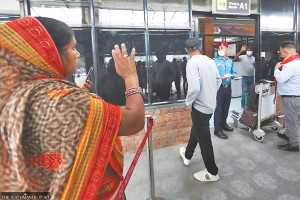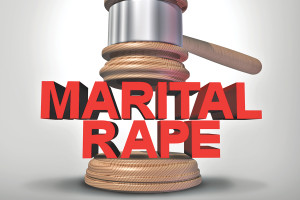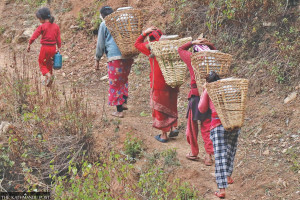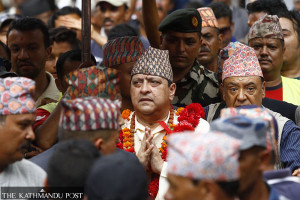 16.12°C Kathmandu
16.12°C KathmanduOpinion
Genuine issues
Unless Madhesi leaders address the real problems in the Tarai, people’s faith in them will not be restored
Khagendra N. Sharma
The Madhesi Morcha is not addressing the real Madhesi issues. The Madhesi leaders had put whatever agenda they considered popular before the people both in their election manifestos and canvassing until the eve of the second Constituent Assembly (CA) elections. But the voters rejected their agenda and they were reduced from a prestigious fourth position in the first CA to a micro presence in the second CA. Do the people have the right to reject the particular party agenda and, in a way, punish the party in question? Or, do the political parties have the right to impose whatever they consider is right on the people? This is not only a theoretical question but also a pragmatic one. We must find an answer.
In a democracy, the real decision-makers are the elected representatives. In the present context, both the Interim Constitution and the new Constitution of Nepal have recognised the people as the sovereign authority of the country. In the first CA election, the people had put their faith on two unconventional forces: The unified Maoists, giving them the first position with 238 among 601 seats, but denying the majority strength; and the Madhesi parties, giving them the fourth position with 84 seats. The traditional power holders, the Nepali Congress and the CPN-UML, were placed well below the Maoists. But the unconventional forces failed to fulfil their promises and the people reversed their decision in the second CA election. The Maoists were reduced to 84 seats and the Madhesi parties could barely go above single digit.
Point of no return
The Maoists reacted first by boycotting the vote counting and later by forging an anti-establishment alliance of about 31 micro parties, including the Madhesis. However, the Maoists somehow saw the relevance of the people’s power and came back to the mandated task of making and enforcing the constitution. But the Madhesi groups stuck to their anti-popular mandate. Their voice was almost inaudible, but the Indian support in the form of a prolonged blockade made their protests look vociferous. However, with the Indian support almost gone, the Madhesi movement is in the doldrums. They have no destination to reach, but they have arrived at a point of no return.
The main issues raised by the Morcha were citizenship, proportional representation, inclusion of the marginalised Madhesi communities in state affairs and re-demarcation of federal boundaries. Although there has never been a real citizenship issue, the Madhesi movement has always raised it for some psychological impact on the Tarai voters. The new constitution has made it abundantly clear that there is no discrimination against any community, Madhesi or otherwise. Similarly, the issue of inclusion is also settled without discrimination. The Morcha’s demand for proportional representation has also been fully addressed in the first amendment of the constitution. Anyone who reads the constitution can see the irrelevance of the Madhesi movement for these demands.
Yes, the issue of re-demarcation has not been responded in a satisfactory manner. But this issue can and should be settled through dialogue, not by agitation. The dialogue has to be for a mutually acceptable solution. Federalisation is not for the disintegration of the country. The constitution is a flexible document. The Morcha’s half-a-year long Tarai strike, supported by the four-month-long Indian blockade, has put the Madhesi people in as much trouble as people of other areas. It can be safely predicted that if an election were to be held immediately, the people will turn them down even more drastically than in the second CA election.
Problems galore
All these may lead one to conclude that there are no problems in the Tarai. But there are in fact more problems in the Tarai than in other remote areas. And most of the problems are inside the household. The first is the several forms of discrimination against the female sex. Girls are given the least priority in education. They are given away in marriage in early childhood to avoid having to pay later a bigger dowry, which is one of the worst problems in the Tarai. Occasionally, there are cases of bride burning, most of which are associated with an inadequate dowry. Women are denied public roles except in a few politically-inclined families. In some families, women are kept in purdah.
Problems outside the household are caste- and class-based. Caste-based discrimination is more pronounced in the Tarai than in the hills. The worst form of it is the treatment of the Dalits, conventionally known as the untouchables. The Dalits are denied access to water from the village well; many times, whole Dalit villages are burnt as punishment for touching the source of water.
Class-based discrimination is directly reflected in the political leadership, which is conspicuously elite. This stems from the traditional feudal Zamindari (landlordism) system. The common people are treated as inferior subjects with little opportunity to compete with the elites. Many ordinary people suffer from backwardness, poverty, illiteracy and other forms of deprivation.
None of the Madhes-based parties put the myriad Madhesi problems in their agenda. Many Morcha leaders have served in the government at least once. Strangely, these leaders endorse the policy of the government while they are ministers, but protest against the same policies when their term is over. The Madhesi people are very familiar with such hypocrisy. Unless leaders address the real Madhesi problems, people’s faith in them will not be restored.
The Madhesi agitation has proved to be counterproductive for the Morcha leaders. The Indian help has been withdrawn, and other international missions in Kathmandu have also advised them to shun the path of protest and participate in dialogue. They have failed to get the support of the hills as they have never addressed the problems there. So the only way to save face is to talk, negotiate and rationally find mutually agreeable solutions.











.jpg&w=300&height=200)



